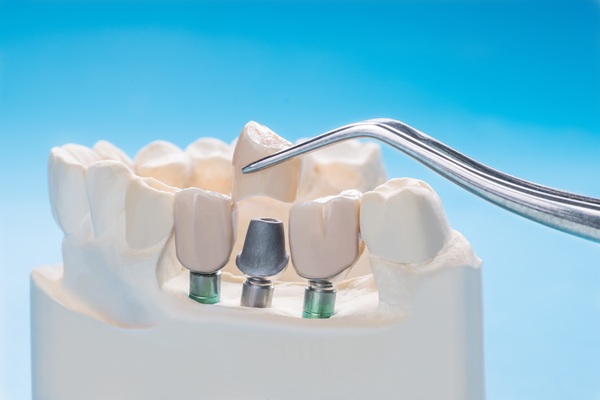6 Tips from an Emergency Dentist on Preventing a Dental Dilemma

No one starts their day hoping to visit the emergency dentist, following dental trauma. In most situations, a dental emergency means there is a high risk of permanent tooth loss, severe gum bleeding or severe tooth pain.
If you experience a dental emergency, you need to visit the dental office immediately. The dilemma could happen suddenly, like getting a tooth knocked out during sports, or they can happen slowly, such as an abscessed tooth. How then do you protect your teeth and gums so you can lower the risks of dental dilemma?
6 Tips for preventing a dental emergency
1. Practice daily dental hygiene
Brushing and flossing regularly is crucial for your teeth and gums' health. Bacteria tend to accumulate quickly in food debris, which can cause tooth decay or gum diseases. Infections are detrimental to the teeth and gums, and could potentially lead to a visit to the emergency dentist.
2. Mouthguards
Mouthguards are beneficial to everyone, especially if you participate in sports. Mouth guards help shield your teeth from damages by absorbing heavy blows to the mouth. Ideally, you should wear mouthguards when participating in contact sports and recreational activities where the risks of falling and hard blows are higher.
3. Watch your meals
You probably grew up hearing that candies, crackers, sugary and starchy foods are bad for the teeth. Coffee, fruit juice, soda and alcohol are all beverages you should avoid or drink sparingly. Sticky meals often get trapped between the teeth and can be hard to remove. Hard, crunchy foods can damage your teeth if you bite too hard on them, causing a dental emergency. Ensure you avoid any food that requires excessive force to chew.
4. Sealants
Sealants are commonly provided as preventative care for children, but they are effective for adults as well. Sealants are transparent, plastic covering painted on the chewing surface of the teeth, usually the molars. Food debris typically gets trapped in the grooves of the teeth and could turn to plaque if they bind with bacteria. Sealants are ideal for children who are still learning about oral hygiene and seniors who have a hard time flossing and brushing their teeth correctly.
5. Routine dental visits
You need to visit the dentist twice yearly for a dental exam and cleaning. The dentist has the tools to eliminate stubborn plaque deposits that cannot be cleaned by regular brushing. If you fail to visit the dentist, you put yourself at the risk of cavities and gum diseases. During your appointment, the dentist will carefully examine your oral cavity for signs of oral health issues and provide preventive care.
6. Vitamins
Daily doses of vitamins help keep your teeth and gums healthy and resistant to injury and decay. Vitamins A, B and C are excellent for gum health and reducing the risk of periodontal disease. Vitamin D and calcium help strengthen and stabilize the teeth.
The bottom line
Dental emergencies can be debilitating. They cause pain, long-term damages and sometimes require expensive, invasive dental procedures. With preventive care, you can reduce your chances of having to visit the emergency dentist.
Request an appointment here: https://www.roswelldentalsmiles.com or call Roswell Dental Smiles at (770) 238-1209 for an appointment in our Roswell office.
Check out what others are saying about our services on Yelp: Read our Yelp reviews.
Recent Posts
There has been a lot of talk about dental implants in recent years. Dentists recommend them, and patients benefit from the results of the treatment. Implants restore the full function of the mouth and revitalize smiles. People can enjoy newfound self-esteem and the self-image and health they have been looking for. You may wonder whether…
If you want to improve your smile’s appearance, a smile makeover is a way to go. It is advisable to prepare adequately for this procedure because it increases the desired outcome. Since there are many makeover choices, it is better to take the dentist’s advice and work with the treatment plan that they recommend.The procedures…
Getting the right smile makeover is a form of dental rescue for your eroded enamel. It can be annoying at first, but without treatment, it can be a serious dental issue. Among the causes of tooth or enamel erosion, drinking soda is the most damaging. Drinking such sugary and acidic beverages can wear down your…
You might need a smile makeover if you are unhappy with the color of your teeth. The procedure involves combining cosmetic treatments to meet your unique needs. Some of the reasons your teeth can end up becoming discolored include:Tooth DecayColoring agents in food and beveragesSmokingThinning enamel due to agingTetracycline antibioticsOverexposure to flourideThe type of stains…


